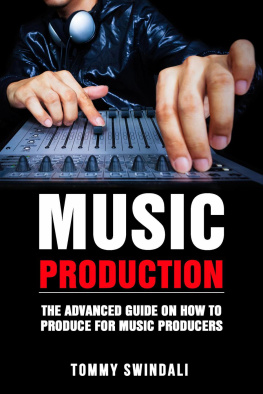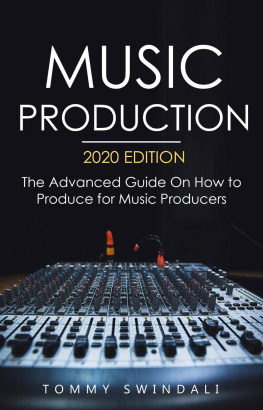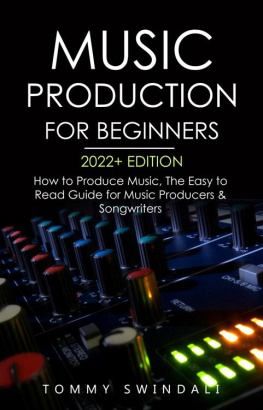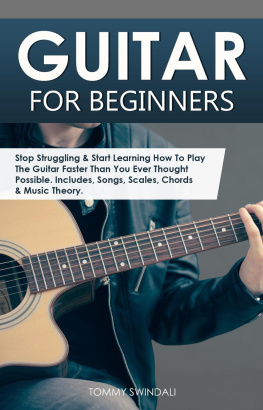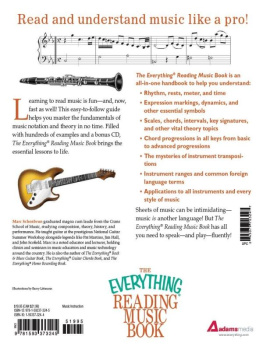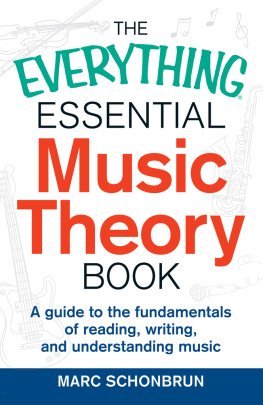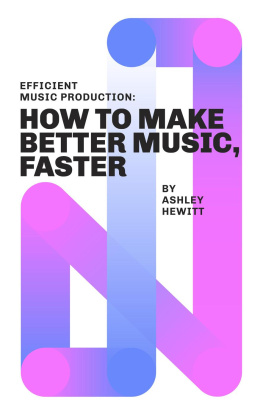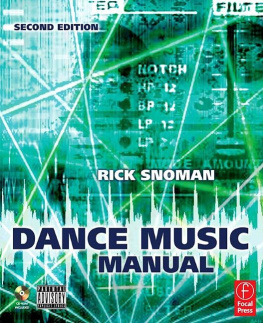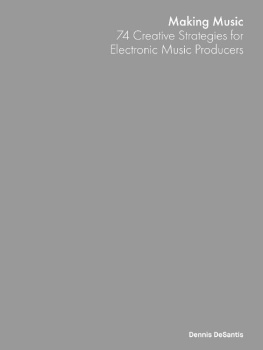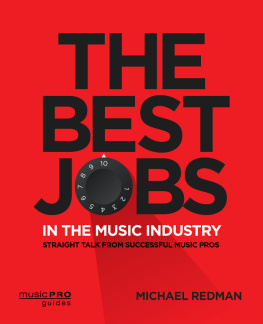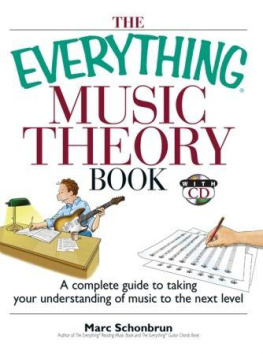Music Production:
The Advanced Guide On How to Produce for Music Producers
Tommy Swindali 2018
Copyright Notice
N o part of this book may be reproduced or transmitted in any form whatsoever, electronic, or mechanical, including photocopying, recording, or by any information storage or retrieval system without expressed written, dated and signed permission from the author. All copyrights are reserved.
D isclaimer
R easonable care has been taken to ensure that the information presented in this book is accurate. However, the reader should understand that the information provided does not constitute legal, medical or professional advice of any kind.
No Liability: this product is supplied as is and without warranties. All warranties, express or implied, are hereby disclaimed. Use of this product constitutes acceptance of the No Liability policy. If you do not agree with this policy, you are not permitted to use or distribute this product.
We shall not be liable for any losses or damages whatsoever (including, without limitation, consequential loss or damage) directly or indirectly arising from the use of this product.
Tommy Swindali 2018
Can I Ask You a Quick Favor?
I f you like this book , I would greatly appreciate if you could leave an honest review
Reviews are very important to us authors, and it only takes a minute to post.
Discover How to Find Your Sound
http://musicprod.ontrapages.com/
Swindali music coaching/Skype lessons.
Email for info and pricing.
I n This Book You Will Discover
With all the music production advice out there, it can be very easy to get overwhelmed. You may get a vague idea of the general topic, but you're more likely to be confused and you definitely won't have any workable knowledge.
Well, the good news is this book changes that. Designed to take the complex world of music production, and explain it in simple terms. If you are a DIY musician, this is a must have for making your music sound professional. For the pros and semi-pros out there, this is a great book for understanding what good music production entails.
You can apply this knowledge to any genre of music. Your Music will sound balanced, clean, professionally mixed and you will be on your way to having a successful career in the Music Production Industry. The barrier to entry for making music is practically non-existent these days. That's why success can only come from you and not the equipment you use. While knowing how to use your tools is important, it's about the drive within that will take you to the next level.
M aybe you are thinking about a career in music production or making some beats. But you see the mountain of knowledge you have to acquire in order to live out your dreams and it seems impossible to get to the level of your production superheroes. The reality is that what these superstar producers do is just like everybody else. They sit in front of their computer for many hours a day and a lot of the days they come up with nothing. If you're passionate about music like them and you're willing to stick at it then you will eventually produce some hot tracks. This book is here to help you acquire all of the required skills and knowledge.
So what exactly is a music producer? A music producer is to a musical recording as a director is to a movie. When it comes to making a movie there is a line drawn in other words the buck stops there at the director. Look at the director as the captain of the ship who controls and steers the ship working with everyone from the technical editors to the actors in order to achieve his or her overall vision of the movie. A music producer should be the exact same. They should control and have the technical expertise and skills to produce a hot track. Simply put a music producer provides the experience to create a polished work of art.
The first foundation of being a music producer is a knowledge of music theory and that has nothing to do with computers. Because of the super fast growth of computer tools such as vsts and virtual synthesizers people get caught up in the whole technical aspect of music when they really should focus on the songwriting aspect. Music theory, chords, melodies, harmonizing, voicing and all of that good stuff. You need to understand a little if you're going to make it. It is the ability to come up with musical arrangements that evoke certain emotions that will either make you want to jump up, party or sob and cry. I cannot emphasize enough how important music theory is, it is by far the most important skill set.
The next foundation is sound design because at the end of the day there are only a finite number of chord progressions that you can come up with. The difference is in the textures and the sounds that you use to convey these chord progressions and melodies. Beginners in sound design are what I'm going to call preset users. Many people will tell you that presets are no good. You're cheating if you're making music with presets and so on and so forth. The reality is that everybody started out with presets. Once you get more comfortable you can start to tweak presets which is the second category. You start out with presets and once you get a good idea going then you can start turning the knobs, add effects and modulate the sounds to make them more unique. At the end of the day most of your production heroes, the people who chart and play on the radio every day are probably either preset users or preset tweakers. Once you're comfortable tweaking presets then there's the third category which are sound designers. Look at some of the biggest names, these guys surely program some of their sounds but they also use presets and some of their own unique sounds are actually just presets that they tweaked a little bit differently.
Overall you have to know where you reside. Understanding your place will help you be comfortable with who you are, let you know what you're good at and then you can dive deeper. Later on you should consider learning the more technical aspects of music production such as mixing and mastering. If you're comfortable with sound design, then maybe you need to improve your songwriting skills and vice versa. If you look at the best producers out there they all have a good mixture of these two skill sets. If you look at the the Hollywood composing scene people like John Williams. Most of his scores use standard presets which are unaltered versions of orchestral instruments. On the other hand you have people like Hans Zimmer who compose fairly simple music but are so good at sound designing that they get most of the contracts on the biggest blockbusters. Then, if you look at hip-hop producers such as Mike Will Made It or or DJ Mustard they are preset users and their compositions are fairly simple. But the way that they put it all together and the particular presets that they pick make them sound very original. Finally, if you look at the EDM world you have very good sound designers such as Skrillex, Diplo and Deadmau5. There compositions are very original and pioneering due to the sounds they use which are often crafted by themselves.
Next page
